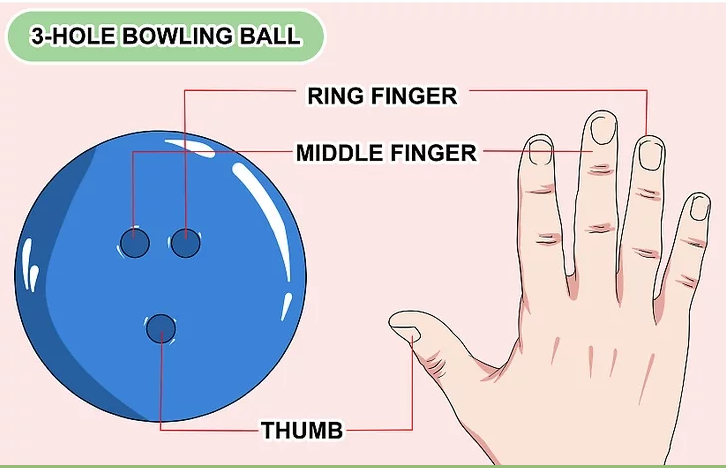Renting a home is a common and necessary part of life, but it can sometimes come with challenges. As a tenant, it’s crucial to be aware of your rights and how to legally protect them while maintaining a positive relationship with your landlord.
In this comprehensive guide, we will explore various strategies and insights on how to legally screw over your landlord without breaking the law. By following the advice provided in this article, you can ensure a smooth and hassle-free rental experience.
How to Legally Screw Over Your Landlord
To legally screw your landlord, begin by thoroughly reviewing your lease agreement, paying close attention to all the governing terms and conditions. Document any pre-existing issues with the property, take photographs, and keep records of all correspondence with your landlord. Familiarize yourself with your local tenant laws and regulations, as they can vary significantly from one place to another. In case of any disputes or conflicts, always try to resolve them through amicable communication first. If that fails, seek legal advice and assistance to ensure your rights are upheld and respected.

Table of Contents
As a tenant, knowing your rights is essential. Here are some key areas to consider:
- Tenant’s Rights and Responsibilities: Understanding your rights and responsibilities as a tenant is the first step towards a peaceful coexistence with your landlord. It’s essential to know what you’re entitled to and what’s expected of you. You can read this on your contractual agreement form.
- Lease Agreement Essentials: A well-drafted lease agreement is your best friend in the world of renting. Learn how to review, negotiate, and understand every clause in your lease to ensure you’re protected.
- Handling Security Deposits: Security deposits can be a point of contention. Discover the legal guidelines for handling security deposits and how to ensure you get your money back when you move out.
- Dealing with Repairs and Maintenance: Maintaining a habitable living space is your landlord’s responsibility. Learn how to request repairs and deal with maintenance issues legally.
- Rent Increases and Rent Control: Rent hikes can be a headache for tenants. Understand your rights in terms of rent increases and how to challenge them if necessary.
- Eviction Laws and Tenant Protections: Facing eviction is stressful, but tenants have legal protections. Familiarize yourself with eviction laws and what to do if you receive an eviction notice.
- Privacy and Entry Rights: Your landlord must respect your privacy. Learn about your rights concerning landlord entry and how to address any violations.
- Discrimination and Fair Housing: Know the laws that protect you from discrimination based on race, gender, religion, or disability when searching for a rental property.
- Tenant Associations and Resources: Joining a tenant association or seeking assistance from tenant resources can be incredibly helpful in challenging situations.
- Documenting Everything: Keeping a record of all communication and issues can be your lifeline in case of disputes. Learn how to document effectively.
- Handling Disputes Amicably: Conflict is natural, but it’s essential to handle it professionally and legally. Discover strategies for resolving disputes without legal action.
How to Scare Your Landlord
Scaring your landlord is not advisable, as it can lead to legal issues and a strained landlord-tenant relationship. However, if you want to assert your rights and protect yourself as a tenant, here are six tips you can use:
- Know Your Rights: Educate yourself about your rights as a tenant to ensure you are treated fairly and legally.
- Document Everything: Keep records of all communication, maintenance requests, and issues with the property to support your claims if disputes arise.
- Seek Legal Advice: Consult with an attorney specializing in tenant-landlord disputes when facing significant issues.
- Communicate Professionally: Address concerns with your landlord in a respectful and professional manner, aiming for amicable resolutions.
- Join a Tenant Association: Consider joining a tenant association to gain support and resources for dealing with landlord-related challenges.
- Understand Local Laws: Be aware of your local tenant laws and regulations, as they can vary widely, affecting your rights and protections.
Remember, it’s essential to approach any tenant-landlord issues with a focus on legality, respect, and open communication rather than trying to scare your landlord.
Also Read: My Neighbor is Harassing Me About My Dog [What To Do]
Sneaky Landlord Tricks
Dealing with sneaky landlord tricks can be frustrating, but it’s essential to handle them wisely. Here are six common sneaky landlord tricks briefly explained:
- Unauthorized Entry: Some landlords may enter your rental property without notice. Be aware of your right to privacy and communicate the need for proper notice.
- Security Deposit Deductions: Landlords may try to withhold a portion of your security deposit unfairly. Document the property’s condition at move-in and move-out to protect yourself.
- Rent Increases: Be wary of sudden and excessive rent hikes. Research local rent control laws and negotiate if necessary.
- Ignoring Repairs: Some landlords may delay or ignore essential repairs. Document the issues, request repairs in writing, and understand the legal steps you can take to address neglected maintenance.
- Retaliation Evictions: Landlords may try to evict you in retaliation for asserting your rights. Know the tenant protection laws in your area and seek legal advice if you suspect retaliation.
- Misrepresenting Lease Terms: Review your lease agreement carefully to ensure your landlord doesn’t slip in unfavorable terms. If you find discrepancies, discuss them with your landlord and seek legal advice if needed.
Being informed, documenting everything, and seeking legal counsel when necessary are your best defenses against sneaky landlord tricks.
Things Landlords don’t want you to know
Understanding what landlords may not readily disclose can help tenants navigate their rental agreements more effectively. Here are about six things briefly explained:
Profit Margins
Landlords may not reveal the actual profit margins on your rental property. Knowing the property’s expenses can be crucial for negotiations and assessing the fairness of your rent.
Property History
Some landlords may not disclose the property’s history, such as past maintenance issues or disputes with previous tenants. Researching the property’s background can help you make an informed decision.
Rent Negotiability
Landlords might not mention that rent is negotiable. In some cases, you can discuss the possibility of lower rent, especially if you have a good rental history and plan to stay long-term.
Hidden Fees
Be aware of hidden fees, such as late payment charges, utility markups, or maintenance costs that may not be transparent in the lease agreement.
Tenant Rights
Landlords may not always educate tenants about their rights, including the right to a habitable living space, privacy, and protection from discrimination. Understanding your rights is crucial.
Lease Termination
It’s essential to know the terms for lease termination, including notice periods and penalties. Landlords might not provide clear information on this, potentially leading to misunderstandings when you decide to move out.
Being aware of these factors and asking questions during the rental process can empower you as a tenant and help you make informed decisions about your living situation.
Tricks Tenants Play on Landlords (Landlord pranks)
While a cooperative tenant-landlord relationship is essential, some tenants may engage in problematic behavior. Here are six tricks briefly explained that tenants may play on landlords:
- Unauthorized Subletting: Some tenants may sublet the property without informing the landlord, potentially leading to unauthorized occupants and additional wear and tear.
- Late Rent Excuses: Tenants may provide various excuses for late rent payments, making it challenging for landlords to enforce timely payments.
- Damaging the Property: Intentional property damage is a significant concern for landlords, as tenants may damage items or fail to report issues promptly.
- Excessive Noise: Tenants who disrupt neighbors with excessive noise can create headaches for landlords and potentially violate lease agreements.
- False Repair Requests: Some tenants may submit fake repair requests, wasting the landlord’s time and resources.
- Refusal to Vacate: Tenants who refuse to leave after the lease expires or when eviction is warranted can create legal and logistical challenges for landlords.
Landlords should maintain open communication with tenants, enforce lease agreements, and address issues promptly to mitigate these challenges.
Frequently Asked Questions
How to stick it to your Landlord
Maintaining a respectful and cooperative relationship with your landlord is generally advisable to ensure a smooth rental experience. Instead of trying to “stick it” to your landlord, focus on asserting your rights, addressing concerns professionally, and understanding local tenant laws. Effective communication, documentation, and legal knowledge can help you resolve disputes and protect your interests without resorting to antagonistic tactics.
Can I withhold rent if my landlord refuses to make necessary repairs?
In some cases, you may be able to withhold rent, but it’s crucial to follow your state’s specific legal procedures. Consult with an attorney or tenant association for guidance.
My landlord is constantly entering my apartment without notice. What can I do?
Landlords must provide reasonable notice before entering your unit. If this continues, document each occurrence and discuss the issue with your landlord. If the problem persists, consider legal action.
What should I do if I suspect I’m being discriminated against during my housing search?
Keep records of any discriminatory incidents and report them to the appropriate housing authority. Consult with an attorney who specializes in fair housing if necessary.
Can my landlord increase my rent whenever they want?
Rent increase rules vary by location. In many places, landlords must provide proper notice and adhere to rent control laws. Research your local regulations to understand your rights.
What are my rights if my landlord wants to evict me?
Tenants have rights, even in eviction cases. Consult with an attorney immediately, and be sure to respond to any eviction notice within the specified timeframe.
How can I ensure my security deposit is returned in full?
Document the condition of the property when you move in, and keep records of all communication regarding repairs and maintenance. When you move out, thoroughly clean and repair any damage beyond normal wear and tear.
Conclusion
Navigating the world of tenant-landlord relationships can be challenging, but with the right knowledge and approach, you can protect your rights and maintain a peaceful living environment.
Remember to always stay informed about your local laws and regulations, document any issues, and seek legal advice when necessary.
By following the guidance in this article, you’ll be well-equipped to legally screw over your landlord when needed while ensuring a positive and respectful rental experience.







